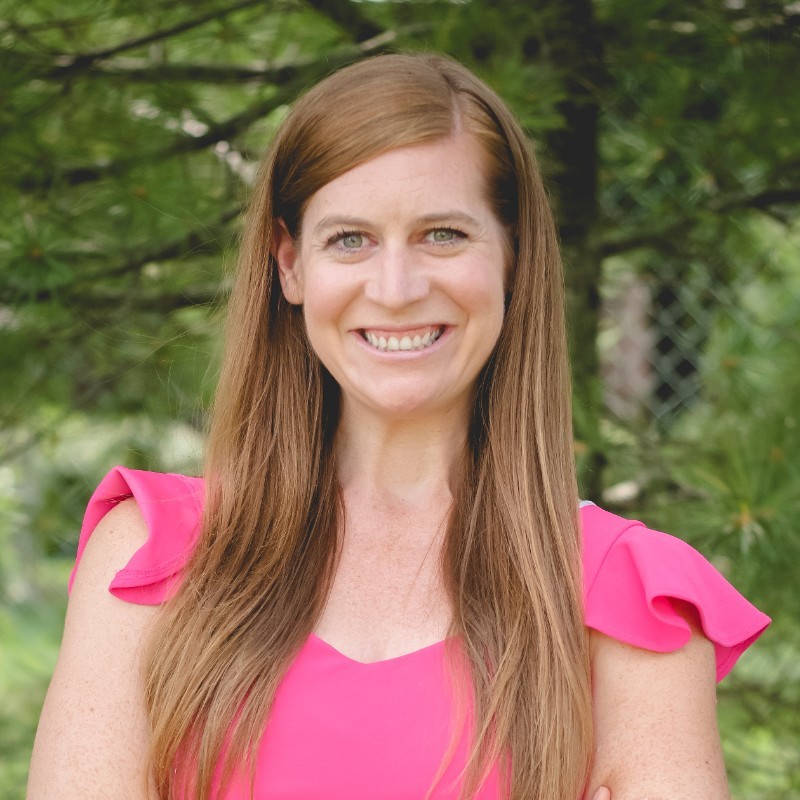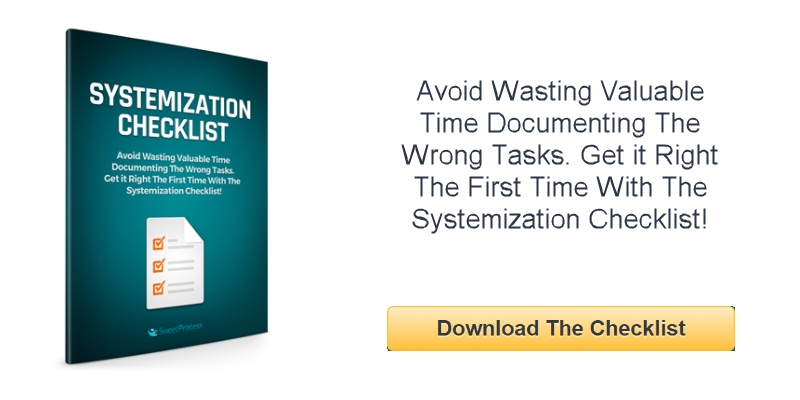How to Handle The Advantages and Struggles of Managing a Remote Or Hybrid Team
Last Updated on May 16, 2021 by Owen McGab Enaohwo
During this pandemic, working from home is what it’s all about, with companies working hard to manage and maintain a positive relationship with team members. Rachel Scava talks about the struggles and advantages that come with members working remotely with Dr. Jeremy Weisz. They also discuss tips on growing your business quicker and ways to boost employer and employee relationships.
Listen to the audio interview
Subscribe for more business success stories
Key Resource List
- SweetProcess.com, 14-day free trial, no credit card required
- Fully Accountable
Show Notes
0:05 – Intro
0:26 – Dr. Jeremy Weisz shares the best solution that makes documenting standard operating procedures drop-dead easy, highlighting a 14-day free trial. No credit card required.
0:46 – Dr. Weisz introduces guest Rachel Scava, COO at Fully Accountable.
2:10 – Ms. Scava talks about how she started working at Fully Accountable, and how she was recruited by her current boss, Vinnie.
2:41 – Ms. Scava talks about some of the roles she plays as COO that she likes.
3:35 – Ms. Scava shares some of the struggles and advantages that come with managing a remote hybrid team.
6:13 – The guest talks about the remote staff the company had pre-COVID, and how she went about managing them during COVID by implementing a reporting process. She also talks about some non-negotiable activities that remote workers are required to do.
8:08 – The guest talks about more non-negotiables remote workers need.
9:09 – The guest shares more about what takes place during remote meetings.
10:11 – The guest talks about training hours that team/work members are required to do.
11:12 – The guest speaker shares the challenges she faces in the role she plays.
12:10 – The guest speaker talks about some things she’s learned from Vinnie.
13:10 – The guest explains how some people work better remotely (working from home).
14:30 – Ms. Scava tells us some of the software she and the company enjoy using.
15:13 – Ms. Scava expands further on communication and managing a hybrid team.
17:07 – The guest explains how she manages the team retreats and things like corporate bonding activities.
18:13 – The guest talks more about Fully Accountable, what they do, and the ideal clients they work with.
19:23 – Ms. Scava gives examples of KPI (key performance indicator) driven software.
21:04 – Ms. Scava gives recommendations for software that can be used to project tracking.
21:49 – Outro
Guest Profile

Rachel Scava, COO at Fully Accountable, is a businesswoman, attorney, and leader with over 10 years of experience.
She is skilled in development, team building, remote work, and hybrid work model management, and scaling business growth.
She studied political science at John Carroll University, and law at the University of Akron School of Law.
Transcript of the interview
Announcer: Welcome to the Process Breakdown Podcast, where we talk about streamlining and scaling operations of your company, getting rid of bottlenecks, and giving your employees all the information they need to be successful at their jobs. Now let’s get started with the show.
Dr. Jeremy Weisz: Dr. Jeremy Weisz here, host of the Process Breakdown Podcast. We talk about streamlining and scaling operations of your company, getting rid of bottlenecks, and giving your staff everything they need to be successful at their job. Past guests include… You check out other episodes of the podcast; David Allen of Getting Things Done. That was a good one. Michael Gerber of the E-Myth. There’s so many more. Check them out.
Dr. Jeremy Weisz: Before I introduce today’s guest, I’m super excited to talk with, and you’re going to be excited about this topic of managing your remote/hybrid team. This episode is brought to you by SweetProcess. So if you’ve had team members ask you the same questions over and over again… Rachel, I’m sure this has never happened to you. And then maybe the 10th time he’s been explaining it, there’s actually a better way. There’s a solution. SweetProcess is a software that makes it drop dead easy to train and onboard new staff and save time with existing staff. And not only do universities, banks, hospitals, and software companies use them, but when I was talking to Owen, who’s the founder, first-responder government agencies use them in life or death situations. So I figure if it’s good enough for them, it’s good enough for me too. So use SweetProcess to document all the repetitive tasks that eat up your precious time, so you can focus on growing your team. You could sign up for a free 14-day trial. No credit card is required. Go to sweetprocess.com. It’s sweet, like candy, S-W-E-E-T process.com.
Dr. Jeremy Weisz: I’m excited to introduce Rachel Scava. She is the COO, chief operating officer, at Fully Accountable. And I’m excited about this topic, Rachel, which is about how to manage a remote hybrid team. So thanks for joining me.
Rachel Scava: Thanks for having me today.
Dr. Jeremy Weisz: So, first of all, how did you start working at Fully Accountable? I know Vinnie Fisher, who’s an amazing individual. How did you and Vinnie meet?
Rachel Scava: Totally. So I was actually in law school at the time, just finishing up my first year, and Vinnie was looking for a new clerk, a law clerk for one of his businesses at the time. And he happened to go to the law school, look for the top business student. That happened to be me. And that would have been back in 2012. And here we are, nearly nine years later, still working together.
Dr. Jeremy Weisz: That’s amazing.
Rachel Scava: Yeah.
Dr. Jeremy Weisz: How do you like being… What are some of the roles that you like about a COO?
Rachel Scava: Totally. So kind of wrapping it with my background, which is corporate, HR, lawyer. It’s very driven on process and very objective, so looking at what the problem is in front of us. And my motto is, “The answer is always yes; it’s how do we get to the yes.” Not just determining we can’t do something.
Rachel Scava: And so I feel like every day the questions that come in are, “What can we do?” Like, yes, there’s a way to do it, but how can we get there and what process can we put in place just so that we can achieve that goal? And so that’s kind of how I’ve been able to weave those two together and keep growing this company.
Dr. Jeremy Weisz: I was excited to talk today, Rachel, because managing a remote hybrid team, there’s some nuances to it. I’d love for you to talk about some of the struggles and advantages.
Rachel Scava: Sure. So I think, for each struggle that we have, there’s so many more advantages of what we’ve learned. And so the first thing that we really were struggling with is this idea of the quantity of the time that you’re doing versus the quality of the work that you’re developing. And I would say the first 6 to 12 months that we were doing this hybrid model, I was like, “Man, I don’t know if they’re clocking in at 8:30 in the morning, like the in-house team is. And are they there at 5:00? And if I call them on the phone, are they going to answer?” But what I realized is, it’s not actually about the time that somebody’s clocked in working, it’s about the quality of the work that they’re producing and the [inaudible 00:04:12] specifically for the client that they’re working on.
Rachel Scava: So we’ve had an entire mind-shift change on this idea. It’s totally great if somebody gets up at six o’clock in the morning and puts in four hours and takes a five-hour break in the middle of the day to be with their kids and family. And definitely during the pandemic shut down, it was very supportive of making sure schoolwork got done. But also being able to clock back in after the kids go to bed and put in another three or four hours, we’re still delivering the same value. I think that’s one of the biggest advantages we’ve had from this remote experience.
Rachel Scava: I think the big disadvantage is we have people all over the US, so it’s harder to get the same touch point with them that I don’t get with the people in-house. So some of the big things that we’ve done is like National Donut Day was one of our favorite, where we actually found a donut place in every city or community where a team member lived that delivered them a donut, just like when we brought in donuts for the team here.
Rachel Scava: So what can we do for the at-home people or the people working remotely that looks similar to those that we do for the team that’s in-house and make them feel like they’re here, even though they’re working in their own home office. Some of that is just using video for our meetings. We have a non-negotiable like, “Just because you didn’t wash your hair this morning and brush it. Throw it up in a ponytail, but you’re still going to be on video with us because we want to see your pretty face.” And that should help keep that human interaction back and forth. And so that’s been another big win for us, to be able to see each other. For us it’s twice a week, but whenever we’re doing a video or a meeting, being on video.
Dr. Jeremy Weisz: I love that, Rachel. I would love to hear the non-negotiables of remote. But before we do, I think that’s a common worry, right? I mean, the worry is, “Are people getting stuff done?” Right?
Rachel Scava: Yep.
Dr. Jeremy Weisz: I know you guys are located in Ohio. Did you have remote staff pre-COVID or did it shift you more… You did.
Rachel Scava: We did. So we were about 50/50 before COVID, but we did have half of our team that works in a corporate office building, so they all had to go home as well. So our big way of helping is… I would say it’s two pieces. One, the team member needs to know that we trust them that they’re doing their job and that we support them in that flexible work schedule, remote schedule that they’re running.
Rachel Scava: But we also need to know that they’re getting stuff done, so we’ve implemented a completely objective reporting process. So for us it’s, “Did your reports go out?” “What’s your profitability on your accounts?” “What training hours are you putting in?” Because we want people training. So, “Are you getting your three hours a week?” And, “What phone calls are you making?” So we look at those four objective metrics every single week on our team. And they’re able to say like, “I hit my three hours. I know I’m good on training because I hit my hours. My reports didn’t go out at the level they are supposed to, but, hey, I can pick up the phone and call Rachel and we can talk through maybe the barriers that I’m having and we can solve that issue.” So they aren’t left guessing if we think they’re doing a good job. They’re able to self-evaluate if they’re doing a good job, which I think is the big piece for both sides to be able to trust one another that the job is getting done and we know it’s getting done.
Rachel Scava: The subjective piece about it is building a relationship with a team that they feel comfortable reaching out to you if there’s an issue. Right? I think one of the things for us is it’s been harder to develop a quick relationship with people who’ve never met me in person versus the two or three that sit right outside my office door. So that’s forever a work in progress, but good communication… Like I said, the video helps a ton. We use Slack for our communication. Just staying in touch, good touch points, has helped change that a lot for us.
Dr. Jeremy Weisz: So, non-negotiable. So people must be on video.
Rachel Scava: Must be on video.
Dr. Jeremy Weisz: What else are some non-negotiables with the remote?
Rachel Scava: Yep. So for our remote, we have two meetings per week that’s, absolutely, you have to be on. The first one is our all-team meeting and the second one is our all-team training. So one’s Monday, one’s Thursday. Those are non-negotiable. I guess if you’re dying, we’d let you off the hook there. But other than that, we ask that you keep those two spots on your calendar every single week.
Rachel Scava: Other ones for us are, “No eating during a meeting.” We can carve out the 30 minutes and make sure we get our snack before or after, but I want to make sure that you’re engaged. Number two is we turn off email, we turn off chats. We turn off anything that’s a distraction, so that we can stay engaged in the meetings.
Rachel Scava: Another one is we prefer, for those that are working from home, that they have a quiet workspace that they can be in. So I know kids and pets… But if we could get 15 to 30 minutes of time that’s quiet and just dedicated, you can go back to your regularly-scheduled program day. But those would be our non-negotiables.
Dr. Jeremy Weisz: Talk about running those meetings. What goes on in those meetings?
Rachel Scava: Yeah. So for me, I always believe if it’s an all-team meeting or something where everybody’s on, we need an agenda so they know where we’re going. It helps keep us on task. And then, that way, if there’s a question that’s asked, I can slot it into the agenda where it needs to be.
Rachel Scava: We really start with an opening, making sure everybody’s feeling welcomed. We go through anything that’s going really well, we go over any updates or things to be aware of, and then we go into some tactical pieces. So here’s what you can expect, here’s what we’re planning, here’s the next one week. It would feel a little sprint-like in the explanation, but a very tactical piece.
Rachel Scava: And then I close every meeting with, “Anybody have any open-forum questions?” I don’t necessarily answer all of them. Sometimes they’re slotted for the next meeting, or we can go back, do a research, issue out, process, update, guide, whatever it may be. But giving people the opportunity to have feedback or questions in every meeting’s important to me.
Dr. Jeremy Weisz: Yeah. And so what about… I want to hear about the training hours.
Rachel Scava: Yeah. So, for us, training is huge, making sure that everybody is continually stepping up their game and what they’re doing. So our minimum requirement per month is 12 hours. It can be any of our all-team trainings that we have. It can be process driven. So the way that we operate is a different training module each week. We have an all-team, we have breakouts, and then departmental. You have the opportunity to join any of those trainings, but we log them. And then all of them are followed up with a quiz or maybe a mini report on what you learned, and any open questions that you have, so we can make sure that the whole loop of the training is closed for you, that you don’t leave more confused than what you came. The goal then is to always develop that back into a process in our system so that we continue to create consistency for everything that we do client by client, person by person.
Dr. Jeremy Weisz: What do you find is maybe a big challenge of the role?
Rachel Scava: Of my role?
Dr. Jeremy Weisz: Yeah.
Rachel Scava: Yeah. I would say the biggest challenge right now, as we’re growing, is making sure that I keep in touch with people as much as I would like to. When we were a little bit smaller, I could reach out to each person once a week, check in. We’re about three times the size we were two years ago. So making sure that that personal touch is always there with our team members. My goal is to make sure that they feel supported to do their job, by pushing as much consistency and process into their jobs so it leaves as a little room for error as possible. And right now, with the way we’re onboarding people, I’m redoing the same thing every couple days, every other week. So just, I guess, even creating more consistency around what I do to make sure that everybody’s getting the same experience on our team and nobody’s feeling left out or not supported.
Dr. Jeremy Weisz: What are some things, Rachel, that you’ve learned from Vinnie? Some good advice?
Rachel Scava: Totally. So the biggest one would be, you can’t do everything yourself and that’s why we have a team. As a self-proclaimed perfectionist, I find that not everybody does things the same way that I do. But one of the big things that he’s taught me is just because you may not take the same route from A to Z as I do, if we both get there, is it really wrong? And it’s not. It’s just not the way that I would do it.
Rachel Scava: I would say another thing that he’s massively helped me with is leadership and understanding people and where they’re coming from and how to best manage through whatever they’re going through in their life, and not being burdened or upset or taking things personal, but knowing that they have stuff on their side that they’re going through, and how can I help them through that?
Dr. Jeremy Weisz: When we were talking a little bit before you hit record, and we were talking about how some people may be better suited for remote work. What did you mean by that?
Rachel Scava: Yeah. I think that people that do a very process-driven job, that’s very task oriented, and here’s the 50 things that need to be done in a week or month, are a perfect role for a remote position. They know what their role is. They get up every day owning that role and their job is to just keep working through each of those things. That’s a perfect position for a work-from-home.
Rachel Scava: I think, at times, somebody like sales and marketing may be better suited to have a more hybrid, in-house experience where they can meet and collaborate, just because it helps the creative juices flowing. I don’t say you have to, but I think that there’s an element of sitting across the room, still kind of bantering back and forth on ideas, that’s really well suited for those positions.
Rachel Scava: But again, that doesn’t mean you need to be there a hundred percent of the time. It’s just good pieces and parts for times. But yeah, I would say any position that you can really process out is a perfect hybrid model, remote position.
Dr. Jeremy Weisz: And I love to hear your suggestions. You mentioned a couple. Some of your favorite softwares. Because I’m sure with this whole… When we’re remote, there’s different softwares we have to manage. Maybe they’re similar to when we’re in the office, but I’d love to hear what you prefer.
Rachel Scava: Yeah. So for us, we use Zoom for all of our video chats, Slack for our communication. We’re in the G Suite, so Google Drive is a big one for us. But we’ve actually built our own system in which we manage all of our clients out of. So I would say anybody that is a production worker for us, 80% their day is spent… it’s called Your Back Office, and our specific-built system. And it stores and manages all of their work, their to dos, their tasks, reporting, client communications, comes right out of that tool for them.
Dr. Jeremy Weisz: What else, Rachel, should we talk about that we didn’t mention when talking about managing a remote or hybrid team?
Rachel Scava: Totally. So I think one of the big things… And I touched on it a little bit, but I’m going to extrapolate a little bit, is the communication. So for us, we do very specific Slack channels on topics that people are really wanting. So for us, we have the Get-to-Know-Your-Fully-Family, and every week our chief of staff posts a question and the entire team gets going on… Last week it was, “Post the last picture of you in the snow.” And so we had 50 different pictures of people in the snow coming in, and it was such a great experience to just see everybody communicating back and forth. That’s one of those things that I think is priceless for us because it gets our team being friendly with one another and they get to know each other a lot more than just, “Hey, she’s on these accounts.” “He can help you with this.”
Rachel Scava: Another one that we do is we do our retreat each year, so we actually fly in all of our team members to do a two-day retreat. I think that, for us, it’s been so special because we’ve been able to develop bonds and friendships. And we get so much more feedback from people because of that retreat on what they like, what they didn’t like, what they’d like us to see more of, that we spend the whole next year giving them updates on, “Hey, here’s one of the things that was said in the retreat. Here’s how it’s been updated. What do you guys like about it? What don’t you like about it?” So that’s been another big one for us.
Rachel Scava: And then I would say the last piece is continuing that objective analysis for people so that they really know how they’re performing. My goal is to make sure nobody’s ever having to guess how they’re doing or guess my subjective thoughts about them. Right? A job is objective, not subjective, so let’s give them the analysis they need to know how they’re doing.
Dr. Jeremy Weisz: How do you like to run the retreats? Because I can see that’d be an important aspect of, “We’re all remote, but it’d be good to get together in person every so often.” What’s a good format?
Rachel Scava: Yeah. So the first half of the first day is basically an ice breaker; get to know everybody. Go around the room, be uncomfortable, stand up in front of everybody, give the couple fun facts. We’re lucky we have Vinnie, who’s a great emcee. Kind of can kill that awkwardness. Right? So we’ve got that added benefit for us. But it’s such a fun time just watching everybody get out there. Because you can hide a little bit on video, it’s easier to be a little chatty, but once you’re up in front of the room it’s like, “Uh-oh.”
Rachel Scava: The other big thing that we do at the very end of the retreat is an award ceremony, and it’ll be everything from the person that had to fly the farthest to get here, to our most distant homie. And then our two coveted awards are the MVP and the Rookie. So people work real hard each year for those because they know that they’re coming and it’s super fun to celebrate those people at that time. And then the in-between stuff is mixed between corporate bonding-type activities and then more tactical, like where we’re going, what you’d like to see, what our expectations are, what are your expectations for us?
Dr. Jeremy Weisz: Rachel, talk about Fully Accountable and what you guys do.
Rachel Scava: Totally. So we are an outsourced accounting and finance firm for digital, tech, and online businesses. We do everything from your bookkeeping, all the way up through CFO functions and anything you could basically guess in between. And our goal is to give you better data so you can make better decisions. And we’re very KPI and benchmark driven. So because of that, you can get real-time reports out on basically any stat that you’re looking for on a daily, weekly, monthly basis.
Dr. Jeremy Weisz: So who are ideal clients that work with Fully Accountable?
Rachel Scava: Yeah. So anybody that has an online store and sells a product. Software as a service, anybody that does online coaching, online courses, educational, online groups, those would all be our main demographic that we work with. And because we only work with that type of demographic, we’ve got a lot more in-depth, granular data and we’re able to really help you dial in on your numbers.
Dr. Jeremy Weisz: So can you talk about like when you say KPI driven. What would be an example of that, where you’ll see something, you’ll make a recommendation to someone?
Rachel Scava: Yeah. So one of the big ones that we have is Facebook ads. Everybody’s running a bunch of ads and they can see that they’re profitable. But we’re actually going to dial down into each ad, each subset of ad. Help you identify like maybe subset B ad is profitable, but if you cut it and reallocated those funds to your other two ads, how much more would you drive your bottom line? And so we’ll run modules like that for you.
Rachel Scava: Other big ones that we do would be inventory and how can we maximize inventory so that you don’t have heavy balance sheet. Also, you don’t run out of inventory and you can still sell. So what are those ratios that we can come up with? And then the other thing is just the benchmarks for your industry. So we’ll break down your company and its industry by its size. So making sure you’re being against similar-size companies and where you kind of fit. So are you heavy on labor? Are you under on labor? Are you heavy on marketing?
Rachel Scava: So a couple of times we’ve found that people are really under on labor, and if they just added one more marketing person, they could really blow it out of the park if we saw the same return on the person that we did with their other marketing people. So those would be different areas where we’re just doing different data analysis that can help you grow your business.
Dr. Jeremy Weisz: Do you have any recommendations when people are tracking hours, depending what type of businesses. But let’s say they have everyone tracking hours and they could see if, you mentioned earlier, that a project, is it profitable or not profitable? Is there a certain software you recommend for people to track hours on a project basis or client basis?
Rachel Scava: Yeah, so we use TSheets. We really like it because it’s compatible with QuickBooks. So you can actually feed all of that data right in there together, which I would recommend. It’s a very inexpensive software to make sure that you’re tracking the proper hours and you can break it down by project and then a code within the project, as well.
Dr. Jeremy Weisz: Very cool. Rachel, I want to just thank you. Everyone should check out fullyaccountable.com and check out other episodes of the podcast, checkout SweetProcess. Is there any other places online we should point people towards, besides fullyaccountable.com?
Rachel Scava: We do have our Facebook, Instagram, Twitter page. So if you’re looking for us on social, we’ll be on all of those as well.
Dr. Jeremy Weisz: All right. Check out Fully Accountable. Rachel, thank you so much.
Rachel Scava: Thank you.
Announcer: Thanks for listening to the Process Breakdown Podcast. Before you go, quick question. Do you want a tool that makes it easy to document processes, procedures, and/or policies for your company, so that your employees have all the information they need to be successful at their job? If yes, sign up for a free 14-day trial of SweetProcess. No credit card is required to sign up. Go to sweetprocess.com. Sweet like candy and process like process.com. Go now to sweetprocess.com and sign up for your risk-free, 14-day trial.
Owen: Hi, this is Owen, the CEO and co-founder here at SweetProcess. If you’ve enjoyed listening to this podcast interview… Actually, you know what I want you to do? Go ahead and leave us a five-star review on iTunes. That way we get more people aware of the good stuff that you get here on this podcast. Again, go on to iTunes and leave us a five-star review. Looking forward to reading your review. Have a good day.











Leave a Reply